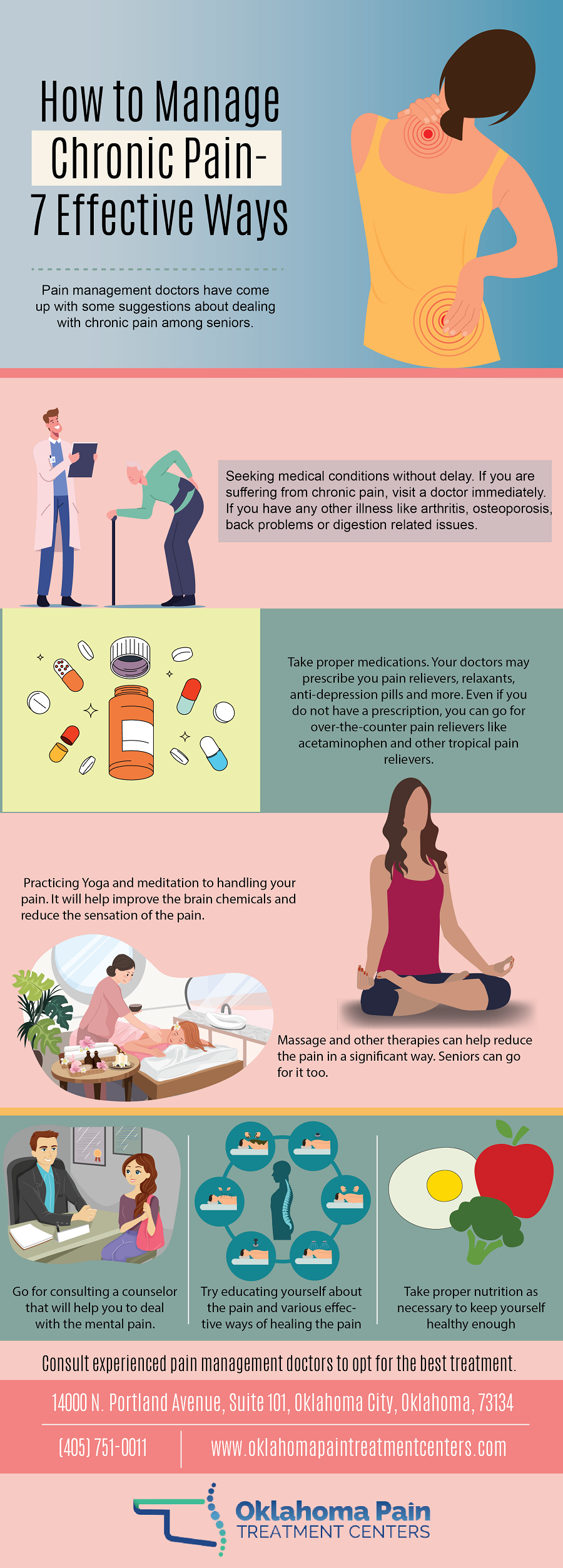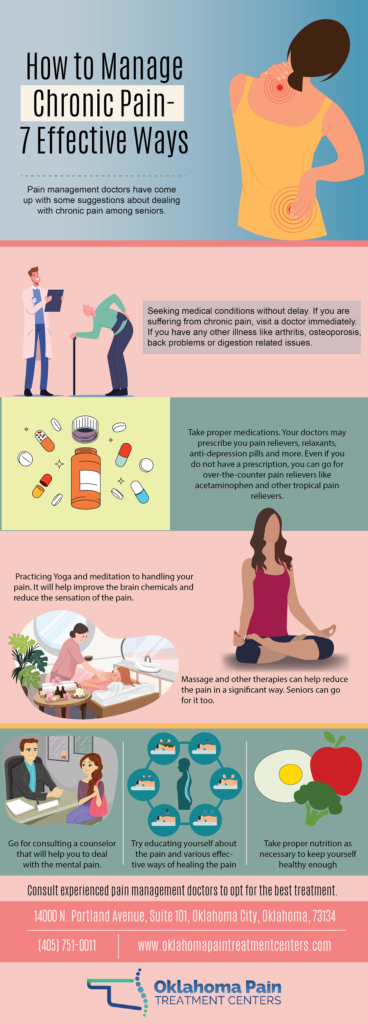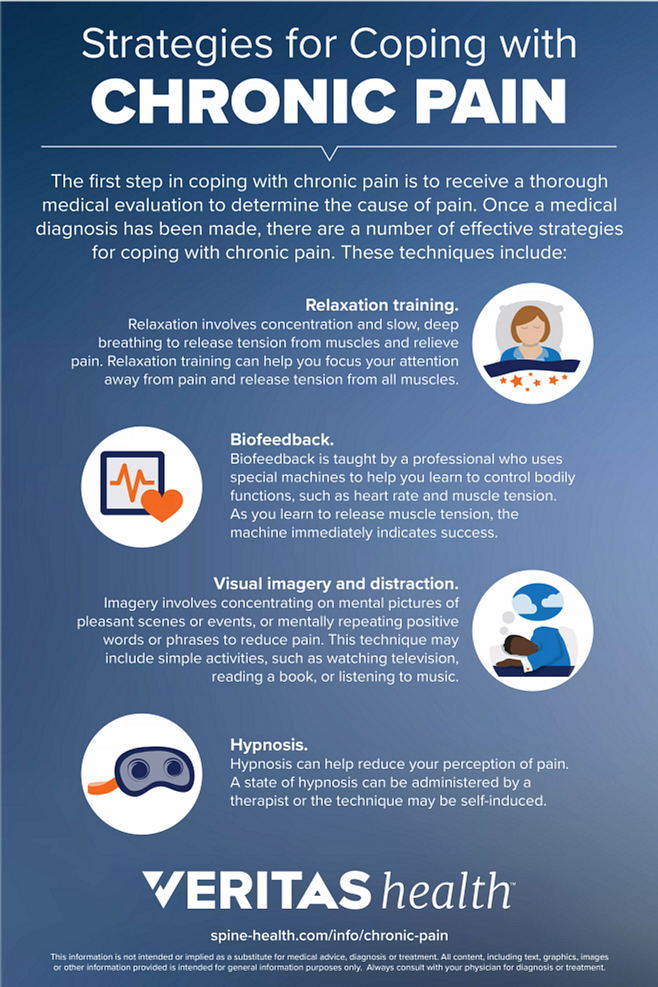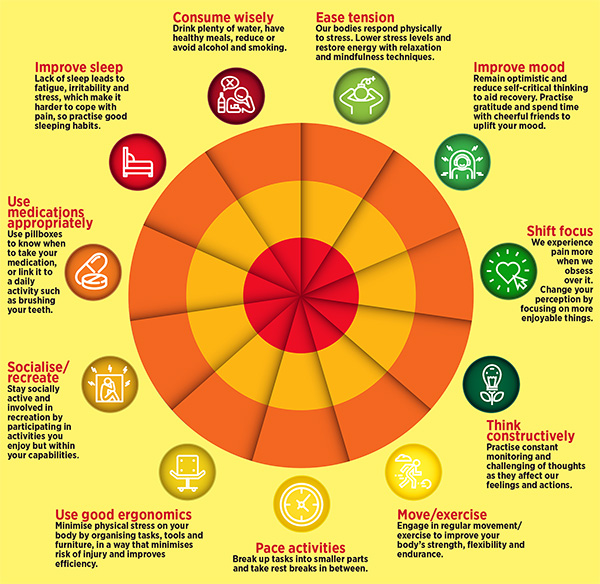
Living with chronic pain can be incredibly challenging, affecting both your physical and emotional well-being. If you find yourself constantly battling discomfort and searching for relief, you may be wondering, “How can I manage chronic pain?” In this article, we will explore various strategies and techniques that can help you regain control over your pain and improve your quality of life. From medications and therapies to lifestyle changes and self-care practices, we will guide you towards finding the right approach to effectively manage your chronic pain and find some much-needed relief. So, let’s embark on this journey together, equipping you with the knowledge and tools to navigate life with chronic pain.
Understanding Chronic Pain
Chronic pain is defined as persistent pain that lasts longer than six months. Unlike acute pain, which serves as a warning sign for the body to protect itself, chronic pain persists even after the initial injury or condition has healed. It can be caused by a variety of factors, including medical conditions such as arthritis, fibromyalgia, or nerve damage.
Living with chronic pain can have a significant impact on daily life. It can limit your ability to work, engage in social activities, and enjoy hobbies. It can also cause sleep disturbances, mood changes, and decreased quality of life. Understanding chronic pain and its effects is the first step in effectively managing it.
Medical Treatments for Chronic Pain
There are various medical treatments available to help manage chronic pain. These treatments can be classified into different categories, including over-the-counter pain relievers, prescription medications, injections and nerve blocks, physical therapy, and surgery.
Over-the-counter pain relievers, such as nonsteroidal anti-inflammatory drugs (NSAIDs) and acetaminophen, can provide temporary relief for mild to moderate pain. Prescription medications, such as opioids, muscle relaxants, or antidepressants, may be recommended for more severe cases of chronic pain. It is important to work closely with a healthcare professional when taking these medications to ensure proper dosage and minimize the risk of side effects.
Injections and nerve blocks involve the administration of medications, such as steroids or local anesthetics, directly into the affected area to reduce inflammation and provide pain relief. Physical therapy focuses on strengthening the body and improving flexibility, with the goal of reducing pain and improving function. In some cases, surgery may be considered as a last resort for chronic pain that does not respond to conservative treatments.

This image is property of images.squarespace-cdn.com.
Alternative Therapies for Chronic Pain
In addition to medical treatments, alternative therapies can also be valuable in managing chronic pain. These therapies include acupuncture, chiropractic care, massage therapy, yoga and meditation, and biofeedback.
Acupuncture involves the insertion of thin needles into specific points on the body to stimulate energy flow and reduce pain. Chiropractic care focuses on the manipulation of the spine and joints to alleviate pain and improve function. Massage therapy uses hands-on techniques to reduce muscle tension and promote relaxation. Yoga and meditation incorporate physical postures, breathing exercises, and mindfulness practices to reduce stress and enhance well-being. Biofeedback involves using electronic devices to monitor and control physical responses, such as heart rate and muscle tension, in order to manage pain.
Lifestyle Changes to Manage Chronic Pain
Making certain lifestyle changes can also help to manage chronic pain. These changes include incorporating regular exercise and physical activity, modifying one’s diet, improving sleep hygiene, and learning stress management techniques.
Engaging in regular exercise and physical activity, such as walking, swimming, or yoga, can help to strengthen muscles, alleviate pain, and improve overall well-being. Making modifications to one’s diet, such as reducing inflammation-promoting foods and incorporating anti-inflammatory foods, may also help to manage chronic pain. Establishing a consistent sleep routine and creating a comfortable sleep environment can improve sleep quality and reduce pain levels. Learning stress management techniques, such as deep breathing exercises, progressive muscle relaxation, or mindfulness-based stress reduction, can help to minimize the impact of stress on pain perception.

This image is property of veritas.widen.net.
Psychological Approaches to Chronic Pain Management
Psychological approaches are an important aspect of chronic pain management. These approaches focus on addressing the emotional and cognitive aspects of pain perception. Some commonly used psychological approaches include cognitive-behavioral therapy (CBT), mindfulness-based stress reduction (MBSR), acceptance and commitment therapy (ACT), and relaxation techniques.
CBT aims to identify and change negative thought patterns and behaviors related to pain, while also teaching coping skills to manage pain effectively. MBSR incorporates mindfulness meditation and yoga practices to promote awareness of the present moment and develop acceptance of pain. ACT focuses on accepting pain as a part of one’s experience and aligning actions with personal values. Relaxation techniques, such as deep breathing exercises, guided imagery, or progressive muscle relaxation, help to induce a state of relaxation and reduce pain.
Support Networks and Chronic Pain Management
Building a strong support network is essential for managing chronic pain. Joining a chronic pain support group can provide a sense of community and understanding, and offer opportunities to share experiences and coping strategies with others who are facing similar challenges. Seeking therapy or counseling with a trained mental health professional can also be beneficial in addressing the emotional aspects of chronic pain and developing effective coping skills. Additionally, building a strong social support system of family and friends can provide ongoing emotional support and practical assistance.
This image is property of images.squarespace-cdn.com.
Assistive Devices and Adaptive Strategies for Chronic Pain
Assistive devices and adaptive strategies can help individuals with chronic pain to perform daily activities more comfortably. These devices can include aids for mobility, such as walking canes or braces, tools for pain management, such as heat or cold therapy packs, and ergonomic modifications to optimize comfort and reduce strain. Pacing and energy conservation techniques can also be employed to avoid overexertion and manage pain levels effectively.
Maintaining Emotional Well-being with Chronic Pain
Living with chronic pain can take a toll on emotional well-being. Addressing any feelings of depression and anxiety is crucial in managing chronic pain effectively. It is important to seek professional help if needed, as mental health resources and therapies can provide valuable support and strategies for coping. Engaging in enjoyable activities and maintaining a positive mindset can also contribute to emotional well-being and overall quality of life.

This image is property of www.healthxchange.sg.
Pain Management Apps and Tools
In today’s digital age, there are various apps and tools available to assist in the management of chronic pain. Pain tracking apps can help individuals monitor and document their pain levels, triggers, and patterns over time, allowing for insight and adjustments to pain management strategies. Medication reminder apps can help to ensure timely and consistent administration of prescribed medications. Virtual reality can be utilized as a distraction technique to help individuals manage pain during medical procedures or therapy sessions. Online pain diary tools provide a convenient platform for individuals to record and communicate their pain experiences with healthcare professionals.
The Importance of Communication with Healthcare Professionals
Open and honest communication with healthcare professionals is crucial for effective chronic pain management. It is important to openly discuss pain symptoms, including their intensity, location, and any factors that worsen or alleviate the pain. This enables healthcare professionals to accurately assess the pain and adjust treatment plans accordingly. It is also important to explore various treatment options, ask questions, and seek second opinions if necessary. Being your own advocate and working collaboratively with healthcare professionals can ensure that you receive the adequate pain management care you need.
In conclusion, managing chronic pain requires a holistic approach that addresses its physical, emotional, and psychological aspects. Understanding chronic pain, exploring medical treatments, embracing alternative therapies, making lifestyle changes, utilizing psychological approaches, building support networks, utilizing assistive devices, maintaining emotional well-being, utilizing pain management apps and tools, and effectively communicating with healthcare professionals are all key components in successfully managing chronic pain. By incorporating a combination of these strategies, individuals can take control of their chronic pain and improve their overall quality of life.

This image is property of post.medicalnewstoday.com.
